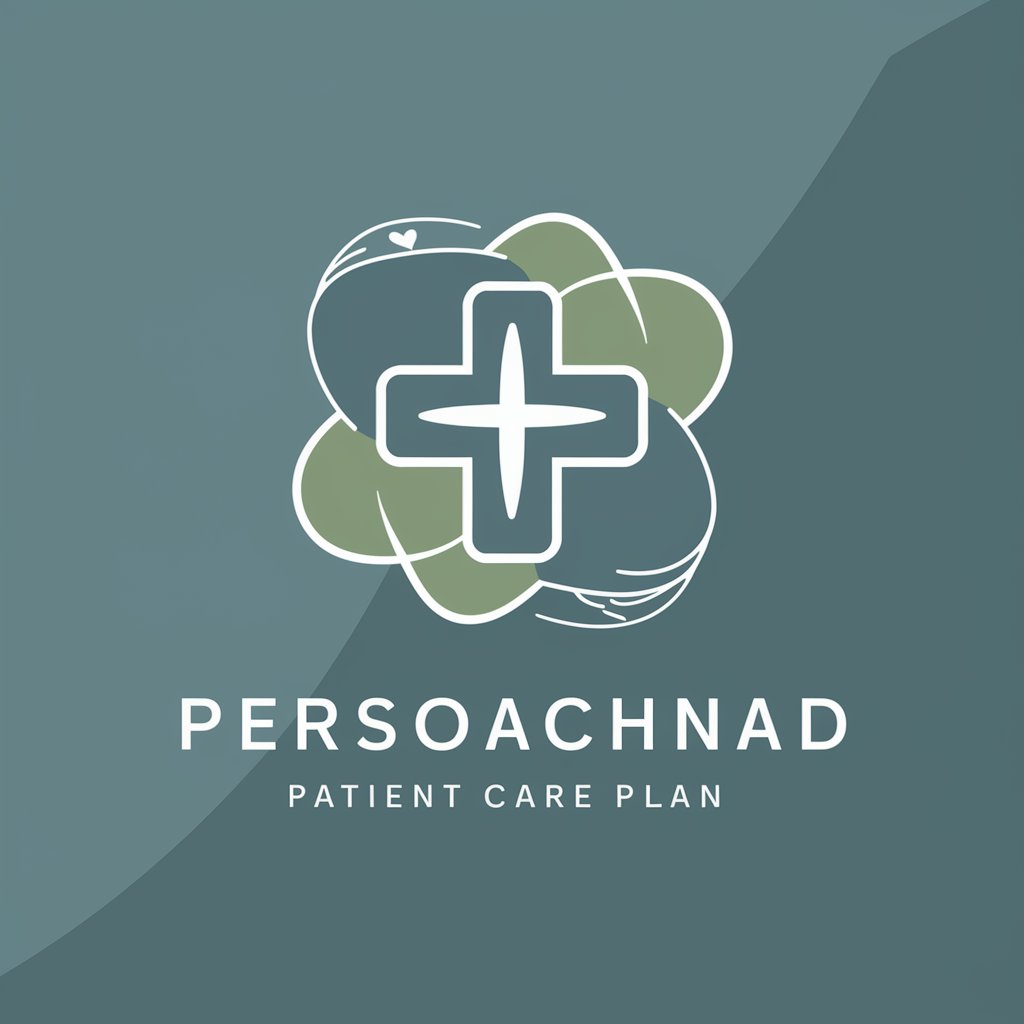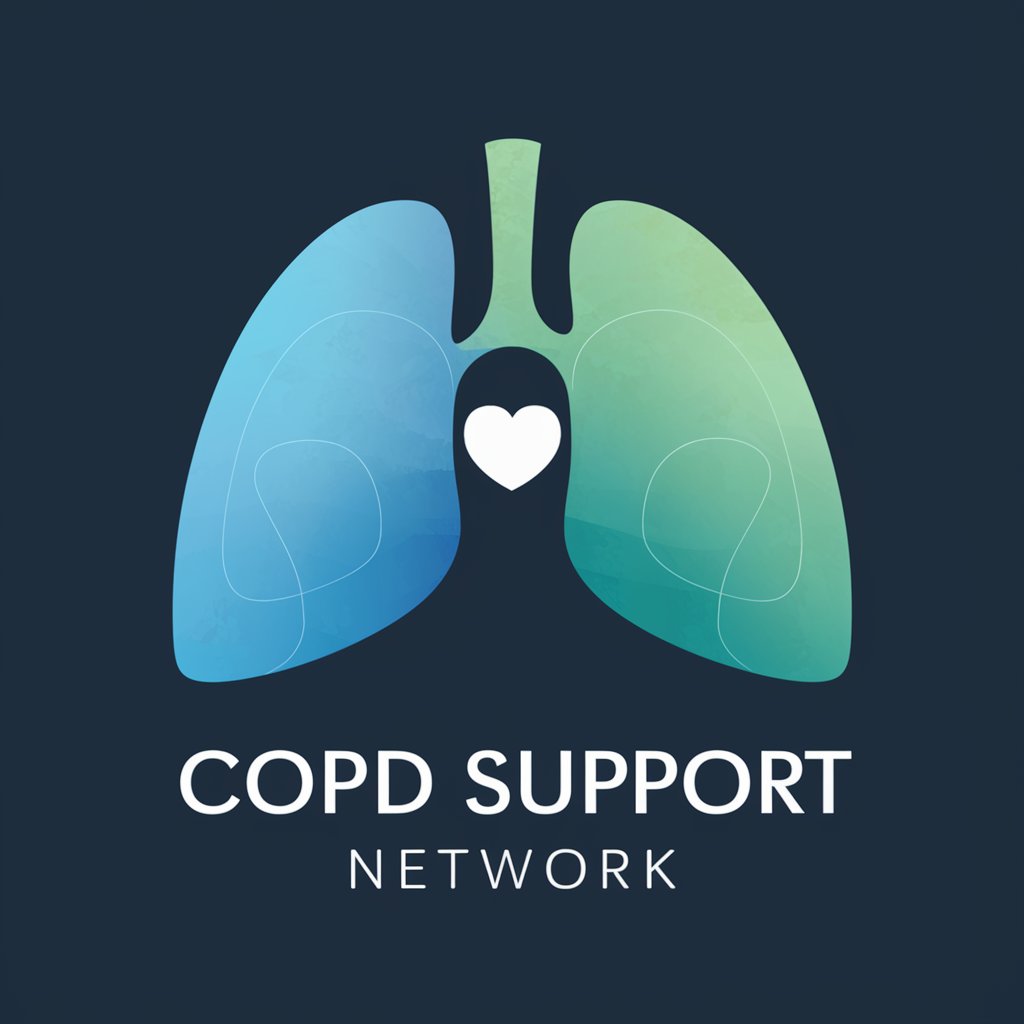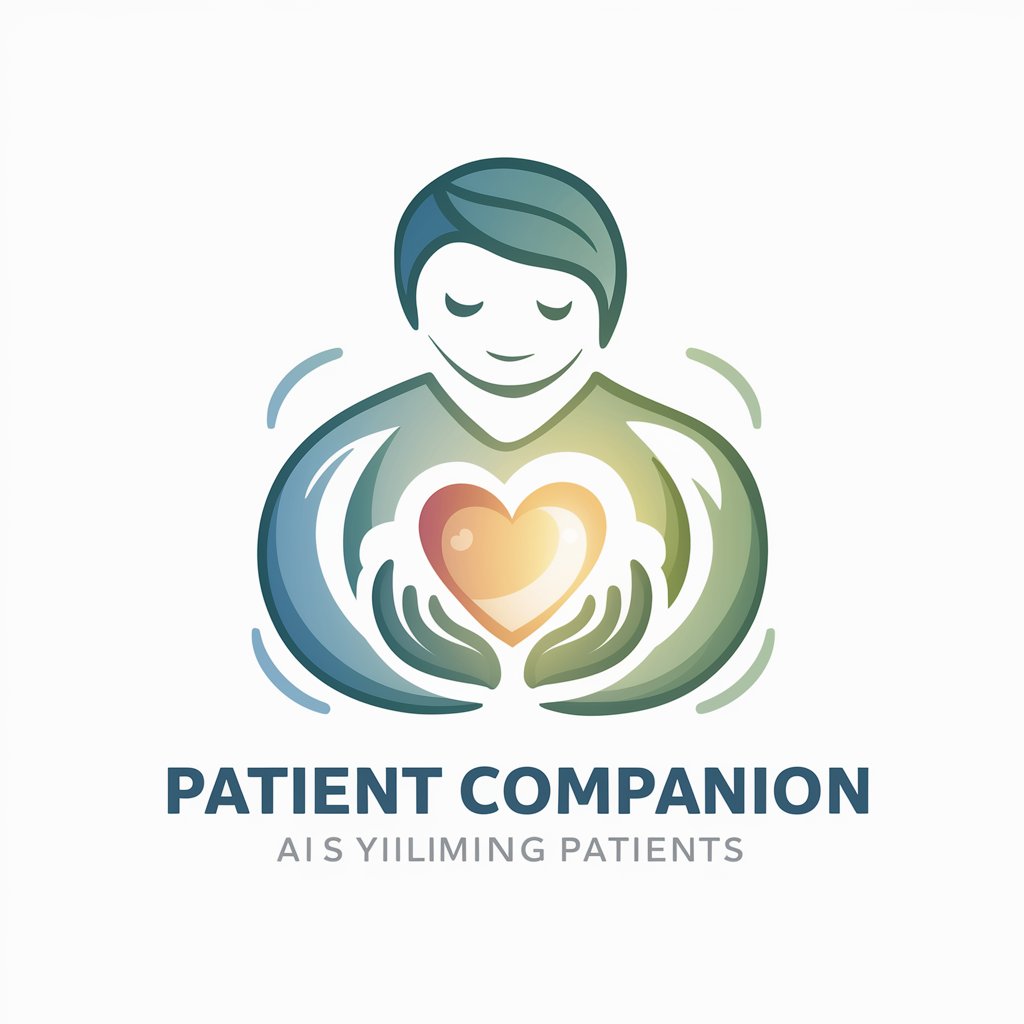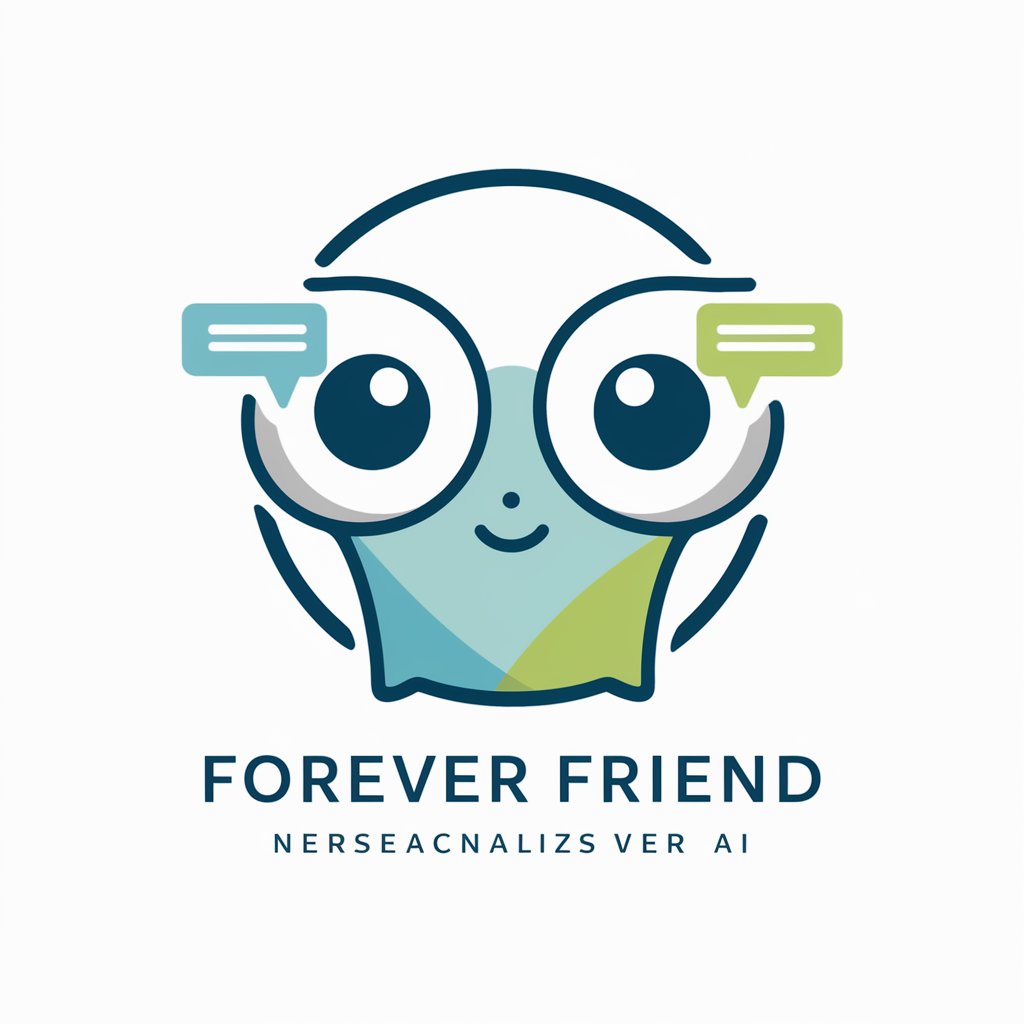Personalized Patient Care Plans - Tailored Patient Health Plans

Welcome! Let's create a personalized care plan for you.
Tailor Your Care with AI
Based on the patient's medical history, what would be the best approach to...
How can we adjust the care plan to better accommodate...
Considering the patient's current conditions and treatment preferences, what modifications should be made to...
What are some alternative treatment options for...
Get Embed Code
Overview of Personalized Patient Care Plans
Personalized Patient Care Plans are designed to tailor medical advice and interventions based on individual patient profiles, which include their medical history, ongoing conditions, and personal treatment preferences. This approach integrates various data points to formulate a customized care strategy that not only addresses the specific health issues but also aligns with the patient's lifestyle and preferences. For example, a diabetic patient might receive a care plan that includes specific dietary recommendations, medication adjustments, and personalized exercise schedules based on their age, weight, and how long they have been diagnosed with diabetes. Powered by ChatGPT-4o。

Key Functions of Personalized Patient Care Plans
Health Optimization
Example
Creating a heart disease prevention plan for a patient with a family history of the condition.
Scenario
This plan may include smoking cessation strategies, cholesterol-lowering diets, and targeted physical activities designed to strengthen cardiovascular health.
Disease Management
Example
Managing Type 2 Diabetes through integrated personal and medical approaches.
Scenario
Such a plan might involve detailed blood sugar monitoring schedules, insulin management, personalized diet plans that exclude high glycemic index foods, and routine consultations with a diabetes educator.
Lifestyle Adjustment Recommendations
Example
Advising a patient with hypertension on lifestyle changes to manage blood pressure.
Scenario
Recommendations could include reducing sodium intake, increasing weekly aerobic activity, stress management techniques like meditation or yoga, and regular blood pressure monitoring at home.
Target User Groups for Personalized Patient Care Plans
Patients with Chronic Conditions
Individuals suffering from long-term diseases such as diabetes, hypertension, or arthritis. These patients benefit from customized care plans that provide specific guidelines and treatment adjustments to manage and mitigate their condition effectively over time.
Elderly Patients
Older adults often face multiple health issues that need to be managed simultaneously. Personalized care plans help in coordinating these various treatments in a way that is safe, efficient, and considerate of the patient’s overall health and mobility levels.
Individuals Seeking Preventative Care
People who are at risk of developing medical conditions due to family history or lifestyle factors. Personalized care plans in preventative care can help in identifying potential health issues early and guide patients on how to avoid these conditions through lifestyle changes and regular monitoring.

How to Use Personalized Patient Care Plans
Begin Trial
Visit yeschat.ai for a free trial without login, also no need for ChatGPT Plus.
Review Privacy Policies
Familiarize yourself with the privacy policy to understand how your data will be used and protected.
Enter Patient Data
Input relevant patient information such as medical history, current conditions, and treatment preferences.
Generate Care Plan
Use the provided tools to generate a personalized care plan tailored to the patient's specific needs.
Apply and Adjust
Implement the care plan and adjust as necessary based on patient feedback and changes in their condition.
Try other advanced and practical GPTs
Literature Assistant
Empowering Literature Reviews with AI

パラパラ漫画クリエーター
Animate Your Stories with AI

News4コマ漫画
Turn news into humor with AI

虎皮猫漫画
Craft Your Stories with AI

漫画解说家
Empowering Manga Enthusiasts with AI

Content Mentor
Empowering Instagram with AI

COPD - patient group
Empowering COPD patients with AI-driven conversations.

Patient Advocate
Empowering Your Health Decisions with AI

Patient Companion
Empowering Your Health Conversations

Forever Friend
Engage Smarter, Connect Deeper

Rimon&Lior Forever
Explore Rimon's Music with AI

Harry Potter Forever
Unleash magical creativity with AI

Frequently Asked Questions About Personalized Patient Care Plans
What is a Personalized Patient Care Plan?
A Personalized Patient Care Plan is a tool that generates tailored health recommendations based on an individual's medical history, current health conditions, and personal treatment preferences.
How does the care plan maintain patient privacy?
The platform adheres to strict privacy policies, ensuring that all patient data entered is secure and used solely for creating personalized care plans.
Can these care plans replace medical advice from professionals?
No, these care plans are designed to complement professional medical advice, not replace it. Always consult with a healthcare provider for any medical decisions.
How can I adjust a care plan if a patient's condition changes?
The tool allows for ongoing updates to the care plan, ensuring it can be adjusted as a patient's health status evolves.
Are there any prerequisites for using this tool?
Users should have a basic understanding of medical terms and conditions to enter accurate patient data and interpret the generated care plans effectively.
